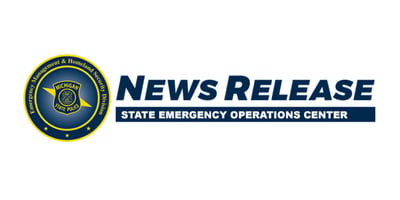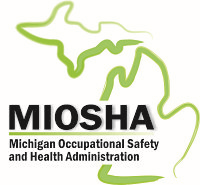
LANSING, MICH. To ensure front-line hospital workers caring for and treating COVID-19 patients are receiving the appropriate personal protective equipment (PPE) from their employer, the Michigan Occupational Safety and Health Administration (MIOSHA) has launched a state emphasis program (SEP) that will be in effect through December 31, 2020. This SEP will increase MIOSHA’s presence in hospitals to enforce the requirement to provide appropriate PPE to protect hospital staff and ensure they can continue to care for those most in need.
“As Michigan continues to combat the spread of COVID-19 and protect workers, it is especially important that front-line workers coming in direct contact with this disease have the equipment to protect themselves,” COVID-19 Workplace Safety Director Sean Egan said. “MIOSHA will conduct inspections of hospitals to help ensure employees are properly outfitted with PPE and employers are following the standards put in place.”
As they provide medical care to the most severe cases of COVID-19, hospital employees are at the highest risk of exposure and their employers must provide PPE to protect them. According to the U.S. Centers for Disease Control and Prevention (CDC), healthcare workers have been significantly impacted by COVID-19. As of June 24, 2020, the CDC reports 84,557 cases and 469 deaths from COVID-19 among healthcare workers in the U.S. In Michigan, 15 hospital worker fatalities were reported to MIOSHA as potentially related to COVID-19.
PPE shortages due to the COVID-19 pandemic have posed a tremendous challenge to the hospitals across the nation, resulting in rationing, recycling and other strategies to make the best use of the limited supply of PPE.
“MIOSHA staff will evaluate the employer’s compliance with existing MIOSHA standards along with the Governor’s Executive Orders, CDC guidance and OSHA Guidance on Preparing Workplaces for COVID-19 especially as they pertain to PPE,” MIOSHA Director Bart Pickelman said. “The front-line healthcare workers must have the appropriate safeguards including PPE to protect them from contracting COVID-19.”
In the coming weeks, MIOSHA will conduct enforcement inspections in Michigan hospitals. If the inspections determine deficiencies in the employer’s COVID-19 preparedness and response plans including not providing appropriate PPE, citations and penalties will be issued.
The Consultation Education and Training (CET) Division will use outreach activities as an opportunity to raise awareness among employers, employees and safety and health professionals on the best practices for COVID-19 preparedness and response plans in hospitals. CET consultants are available to help employers develop and implement long-term safety and health programs and comply with current MIOSHA regulations. For free statewide assistance, companies can call the CET Division at 517-284-7720 or toll-free at 800-866-4674.
Employers and employees with questions regarding workplace safety and health may contact MIOSHA using the new hotline at 855-SAFE-C19 (855-723-3219).
To report health and safety concerns in the workplace, go to Michigan.gov/MIOSHAcomplaint.
Learn more about MIOSHA and its efforts to protect Michigan’s workforce during the pandemic and for information on the latest workplace safety guidance at Michigan.gov/COVIDWorkplaceSafety.
Information around this outbreak is changing rapidly. The latest information is available at michigan.gov/coronavirus and CDC.gov/Coronavirus.
###













